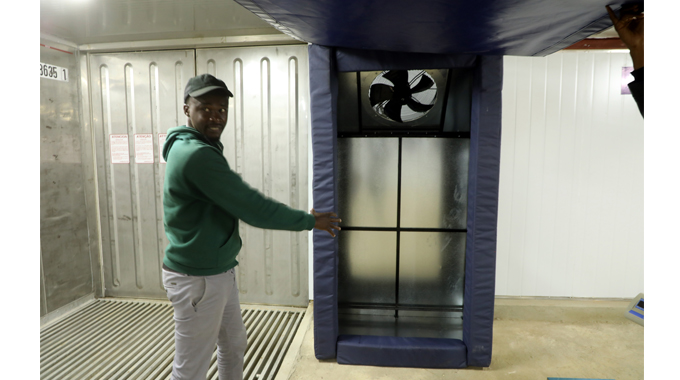ADRA sets up cold chain facility for small-holder farmers

Sikhulekelani Moyo, Business Reporter
THE Adventist Development and Relief Agency (ADRA) Zimbabwe has established a cold chain storage facility in Woodville, Bulawayo to assist local farmers enhance quality storage standards and reduce post-harvest losses.
The initiative is also meant to increase export building capacity for farmers and ensuring the country has adequate stocks for supply during off-season times.
ADRA, which is an international humanitarian agency operated by the Seventh-day Adventist Church was founded in 1956 and works closely with communities to develop productive capacities as well as disaster relief.
Business Chronicle yesterday visited Spinyard-ADRA Seedlings facility in Woodville and the new ADRA Centre of Excellence where operations manager, Mr Leonel Maphosa, said their organisation was supporting Government efforts to revamp the horticultural sector.
This is being achieved through training of farmers, providing storage facilities and market facilitation, among others.

ADRA refrigirated warehouse
“About 60 percent of produce is lost post-harvest and this Centre of Excellence was built to reduce post-harvest losses,” said Mr Maphosa in an interview.
“We are mainly dealing with perishable products, which have short shelf life and the more farmers try to keep their produce at home or in farms the more they lose.
“Also, taking the produce to the market will not solve any problem as you may find out that the markets are flooded.
“With this facility, we can keep the produce fresh and direct it to the market during the time of shortages.”
Mr Maphosa could not be drawn to disclose the budget used in the initiative but said the cold room storage facility in Montgomery would support small-holder farmers keep their produce in a safe refrigerated area with extended shelf life at a lower cost.

Mr Leonel Maphosa
The products can be sent to the market during the times of shortages when prices are favourable to farmers, he said.
The establishment of the cold room facility was funded by ADRA Zimbabwe in partnership with the Australian Government through the Australian NGO Cooperation (ANCP).
Mr Maphosa said such facilities were mainly available to established commercial farmers who can afford to have their own facilities with many small holder farmers being left out due to capital capacity constraints.
“Commercial farmers are able to do it and can also work with Global G.A.P in quality control, but small holder farmers cannot afford such,” he said.
“As ADRA, we facilitate markets for small holder farmers and consolidate them to get into groups so that they afford to get quality assessment for their produce to meet export market standards and also be able to meet the cost of exporting to be able to get good prices.

ADRA Project compost
“We do ‘market back to the farmers’ strategy, where we first do market research and say farmers can produce products according to demand by the market.”
Global G.A.P. is a farm assurance programme that translates consumer requirements into ‘good agricultural practice’. Mr Maphosa said ADRA was involved in training of farmers on practicing 100 percent organic farming, which enhances soil quality, fights climate change through reduced use of fertilisers and pesticides and also helps in reducing risks of food contamination from chemicals.

ADRA Leo Maposa shows a peas crop
Speaking during a recent National Horticulture Recovery and Growth Plan sensitisation workshop held in Bulawayo, ADRA Zimbabwe programmes manager, Mr Mhlonipheni Ncube, said their organisation has partnered with the Ministry of Lands, Agriculture, Fisheries, Water and Rural Development in sensitisation of the horticulture recovery and growth plan through the ENGAGE project.
“The ENGAGE project is running from July 2021 to June 2024 targeting 50 000 small-holder farmers in Umguza, Murewa and Mutoko districts,” he said. — @SikhulekelaniM1












Comments